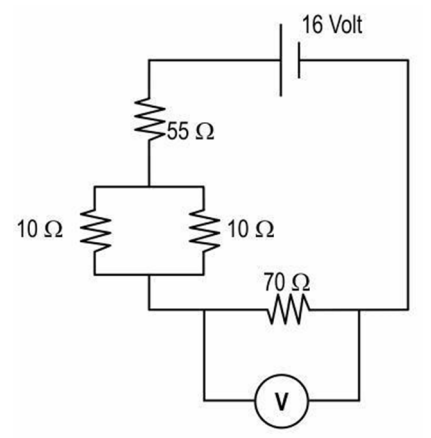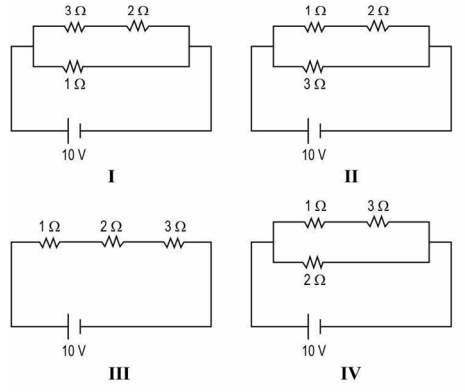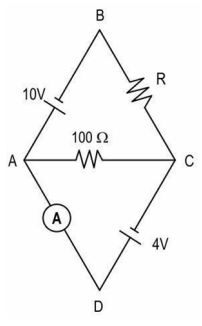As the CBSE Class 12 board exams get closer, it’s important for students to understand the new exam pattern. Starting in the 2024-25 school year, CBSE will include 50% more competency-based questions. These questions will be both multiple choice and written, focusing on how to use what students have learned in real-life situations.
For Class 12 Physics, Unit -2 on Current Electricity, CBSE has provided competency-based questions that help improve understanding and application skills. It highlights key competency-based questions and provides answers to help students succeed. These questions are designed to help students strengthen their understanding and apply concepts effectively for their exams.
By practicing these competency-based questions, students will get familiar with the types of questions they are likely to face in the exam. The free PDF includes a variety of questions, such as multiple-choice (MCQs) and free-response questions, with answers provided to guide students in their preparation.
CBSE Class 12 Physics Chapter 2: Current Electricity Important Competency-Based Questions
Q.1 If the voltmeter in the given circuit reads 8 V, what is the resistance of the voltmeter?

A. 70/4119 Ω
B. 70 Ω
C. 420 Ω
D. 4200 Ω
Answer. C. 420 Ω
Q.2 Which combination of the three resistors will dissipate maximum power from a 10 V battery?

A. II
B. III
C. IV
Answer. A. I
| Download PDF | |
| CBSE Class 12 Physics Unit 1 Electrostatics : Important Competency-Based Questions 2024-25 | Click Here |
| CBSE Class 12 Physics Unit 2 Current Electricity : Important Competency-Based Questions 2024-25 | Click Here |
| CBSE Class 12 Physics Unit 3 Magnetic Effect of Current and Electricity : Important Competency-Based Questions 2024-25 | Click Here |
| CBSE Class 12 Physics Unit 4 Electromagnetic Induction and Alternating Current (AC) : Important Competency-Based Questions 2024-25 | Click Here |
Q.3 If the ammeter reading in the given circuit is zero, find the value of the resistance R.

A. 50 ohm
B. 100 oh
C. 150 ohm
D. 200 ohm
Answer. C. 150 ohm
Q.4 Resistances 10 Ω and R Ω are connected in the two gaps of a metre bridge. The null point is obtained at 30 cm on the metre scale from the zero end. What resistance must be connected in parallel to R so that the null point is at the mid‐point of the metre wire?
A. 10 Ω
B. 70/3 Ω
C. 70/4 Ω
D. 3/70 Ω
Answer. C. 70/4 Ω
Q.5 Accelerated alpha particles, constituting a beam current of 0.64 mA, are released by a cyclotron onto a target. Find the number of alpha particles that strike the target in one second.
Answer. Current I = nQ/t = n x 2e/1
[1 mark for the correct formula]

[1 mark for the correct calculations]
Q.6 Alloys like Nichrome, whose temperature coefficient of resistance is ~ 0.4 x 10‐3 /o C at 20 o C, are used widely in the making of wire‐bound standard resistors as their resistance changes very little with changes in temperature.
(i) Find the temperature at which the resistance of a given Nichrome wire would be reduced to half its value at 20 o C.
(ii) State an anomaly regarding the temperature value obtained in (i).
Answer. (i) Using
R = Ro (1 + α ΔT)
Ro /2 = Ro (1 + α ΔT)
ΔT = ‐ 1250 o C
T – To = ‐1250 o C
T = ‐ 1230 o C
[0.5 marks for the correct formula]
[0.5 marks for the correct calculations]
(ii) Anomaly: Since the T = ‐ 1230 o C, is below 0 K or ‐273 o C, it is physically 2 impossible to arrive at this temperature. [1 mark for the correct point]
Q.7 A battery of 6 V drives a current of 60 mA through an electric lamp. Another battery of 10 V drives a current of 70 mA through the same lamp. Is the lamp an ohmic device? Explain.
Answer. It’s a non‐Ohmic device. [0.5 mark for correct conclusion]
Explanation: Voltage change: v2/v1 = 10/6 = 0.6
Current change: I2/I1 = 70/60 = 1.16
When the voltage rises by a factor of 0.6, the corresponding current rises by the factor, 1.16.
Since the proportion change in voltage and the current is not the same, the electric lamp is a NON‐Ohmic device.
[1 mark for the correct calculations of voltage and current change]
[0.5 mark for the correct explanation of the conclusion]
OR
Resistance of the circuit in the first case= V/I = 6/60 x 10‐3 = 100 ohm Resistance of the circuit in the second case= V/I = 10/70 x 10‐3 = 1000/7 = 142.8 ohm.
The resistance represents the slope of V‐I graph for the circuit and from the above calculations, it doesn’t remain constant.
It implies that V‐I graph is not a straight line.
Hence the lamp used in the circuit is a non‐ohmic device.
[1 mark for the correct calculations of resistance values]
[0.5 mark for the correct explanation of the conclusion]
Q.8 A dimmer is a device that is connected to a light bulb and is used to lower the brightness of the light from the bulb. It introduces a resistance in series with the bulb for this purpose. A 44 W bulb in a household circuit is connected across a 220 V power supply.
(a) How much current does the bulb draw initially without the dimmer in action?
(b) What resistance in series would the dimmer introduce in order to drive a current of 0.1 A through this bulb.
-
👉 Read Also - CBSE Class 12 Half-Yearly/Mid Term 2024-25 : Most Important Questions with Answers; PDF Download (All Subjects)
👉 Read Also - How CBSE’s New Exam Pattern Will Impact Class 11 and 12 Students
👉 CBSE Class 12 Study Materials
| CBSE Class 12 Syllabus 2024-25 | CBSE Class 12 Previous Year Papers |
| NCERT Books For Class 12 Books | NCERT Class 12 Solutions |
| CBSE Class 12 Full Study Material | CBSE Class 12 Sample Paper 2024-25 |







 Profile
Profile Signout
Signout








 Quiz
Quiz
 Get latest Exam Updates
Get latest Exam Updates 










